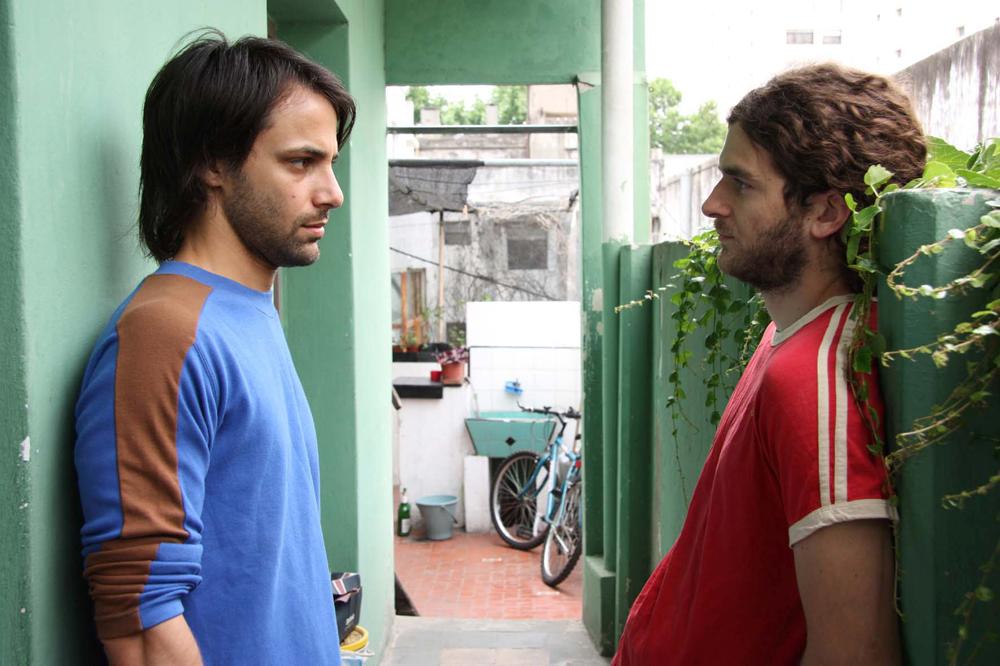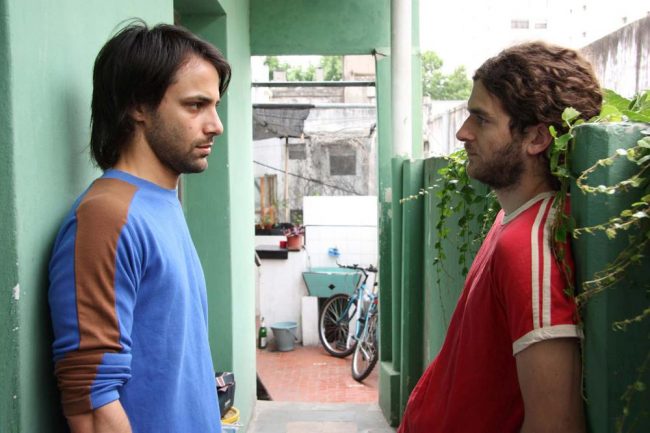
“Plan B,” a film dealing with the elasticity of human sexuality, will be shown at SMU’s Latino Queer Film Festival. (Courtesy of Oh My Gomez! Films)
For the past few years, SMU has been labeled as one of the top homophobic schools in the country. In August, The Princeton Review ranked it as No. 12 most “LGBT-unfriendly” campus. Yet, the university is constantly making strides through on-campus LGBT organizations as well as through partnerships in the greater-Dallas area to engage students in discussions or events relating to gender and sexuality.
One new initiative this year is the Latin American Queer Movie Festival, which is spearheaded by Spanish Professor Francisco Moran.
This semester, Moran is teaching two Latin American Spanish classes that address the representation of gender through literature. However, he decided to extend the conversation beyond his classrooms by incorporating a movie festival that is open to the entire university.
“The movies speak to us regardless of your sexual orientation, your beliefs, your politics or your philosophy,” Moran said. “They also pose the question I have told my students the novels and short stories discussed in class ask us: How to live together?”
There will be five Latin American films shown throughout February that discuss the social and political aspects of human sexuality and gender. The next film, “Plan B,” will be shown Wednesday at 6 p.m. in McCord Auditorium.
While students in both of Moran’s classes are required to attend all screenings, students in his short novels class have been asked to serve as discussion moderators for one of the films.
Moderating the film “Plata Quemada,” or “Burnt Money,” John McAfee believes these screenings offer a more relaxed environment for students to discuss a complex, and sometimes difficult, topic.
“This festival provides an opportunity to engage in a meaningful academic discourse about the topic, but in a more informal setting than the classroom,” he said.
Joining McAfee in the panel discussion is Co-President of Spectrum Sammy Partida. While Partida agrees with McAfee, he also thinks many people are unaware of the influence films have on popular culture.
“These movie screenings are a great opportunity for students to talk about the politics that influence the representation of gender and sexuality,” he said. “This festival will be the space where the cultural significance of these films, and the structures in which they are produced, will be highlighted and investigated.”
Moran invites anyone who appreciates good cinematography and a compelling story to join him and his students Feb. 8, 15, 23 and 29 at 6 p.m. in McCord Auditorium.
“I would like to see the festival turned into an exchange of ideas, a communal enjoyment of good movies and an experience from which all of us have a lot to win and nothing to lose,” Moran said.
All screenings will be shown at 6 p.m. in McCord Auditorium and will include English sub-titles:
Wednesday, Feb. 8: “Plan B” (Argentina, 2009)
Wednesday, Feb. 15: “El beso de la mujer arana/The kiss of the spider-woman” (Brazil-USA, 1985)
Thursday, Feb. 23: “Plata quemada/Burnt Money” (Argentina, 2000)
Wednesday, Feb. 29: “El lugar sin limites/Place without limits” (Mexico, 1978)









